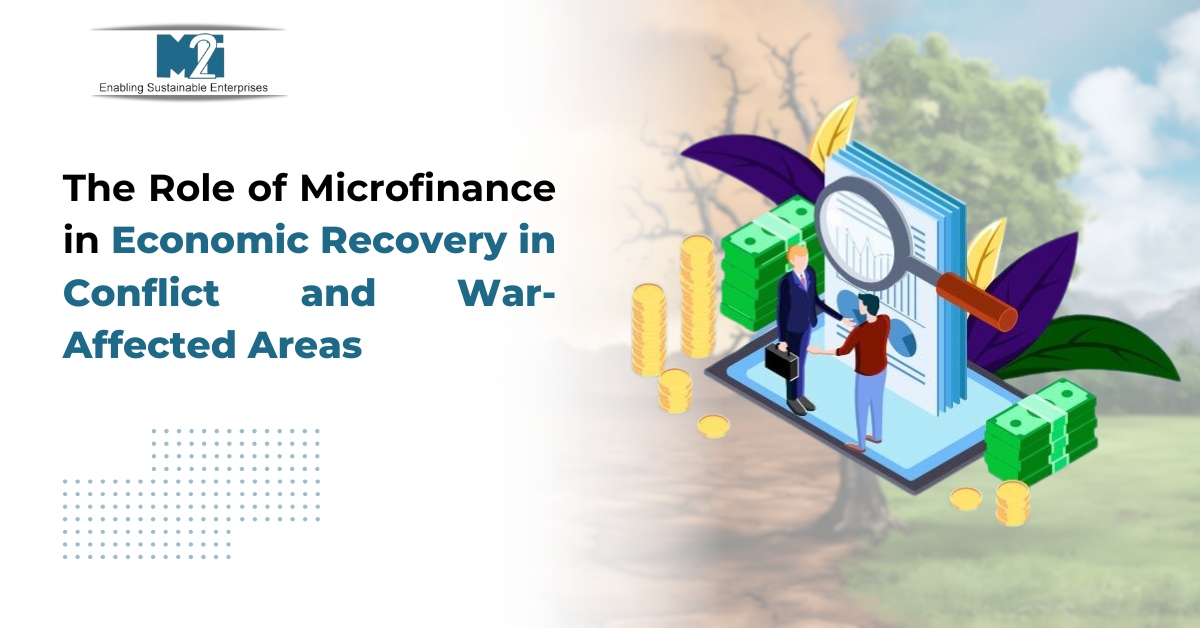
The Role of Microfinance in Economic Recovery in Conflict and War-Affected Areas
Conflict and war leave deep scars on societies, disrupting economies, displacing populations, and creating environments of uncertainty and instability. In such challenging contexts, microfinance can provide useful services, offering financial services to those who need them most. By providing small loans, savings accounts, and other financial products, microfinance institutions (MFIs) can play a crucial role in fostering economic recovery and resilience in conflict and war-affected areas.
Empowering Vulnerable Populations
In the aftermath of conflict, traditional banking services are often inaccessible or non-existent. MFIs step into this void, offering financial services tailored to the needs of vulnerable populations, including displaced persons, returning refugees, and war-affected communities. These services enable individuals to start or rebuild small businesses, thereby generating income, creating jobs, and stimulating local economies.
Rebuilding Livelihoods
Microfinance helps individuals and communities rebuild their livelihoods by providing the necessary capital to restart economic activities. Small loans can be used to purchase tools, seeds, livestock, or inventory, enabling people to resume farming, trading, or other forms of self-employment. By supporting these activities, MFIs help restore a sense of normalcy and stability, which is essential for long-term recovery.
Fostering Economic Inclusion
Conflict often exacerbates social and economic inequalities. Microfinance promotes economic inclusion by providing financial services to those traditionally excluded from the formal banking sector, such as women, youth, and marginalized groups. By empowering these individuals with access to credit and savings, MFIs contribute to more equitable economic growth and help reduce poverty.
Enhancing Resilience
Access to financial services enhances the resilience of individuals and communities in conflict zones. Savings accounts and insurance products help people manage risks and cope with emergencies. Microloans enable families to invest in their future, whether through education, healthcare, or improved housing. This financial security is crucial for building resilience against future shocks.
Supporting Local Economies
Microfinance institutions often have a deep understanding of the local context and can tailor their services to meet the specific needs of conflict-affected communities. By supporting local entrepreneurs and small businesses, MFIs stimulate local economies and create a multiplier effect. Increased economic activity leads to higher demand for goods and services, which in turn creates more jobs and opportunities.
Challenges and Considerations
While the potential benefits of microfinance in conflict and war-affected areas are significant, there are also challenges to consider:
-
Security and Stability: Operating in conflict zones poses significant risks for both MFIs and their clients. Ensuring the safety of staff and borrowers is paramount.
-
Capacity Building: Providing financial literacy and business training is essential to help borrowers use loans effectively and sustainably.
-
Adaptability: MFIs must be flexible and innovative, adapting their products and services to the rapidly changing needs and circumstances of conflict-affected populations.
-
Partnerships: Collaboration with local governments, NGOs, and international organizations can enhance the effectiveness of microfinance initiatives by providing complementary services and support.
Microfinance has a vital role to play in the economic recovery of conflict and war-affected areas. By empowering individuals, rebuilding livelihoods, fostering economic inclusion, and enhancing resilience, MFIs can help lay the foundation for sustainable development and peace. However, to realize this potential, MFIs must navigate the unique challenges of operating in conflict zones with sensitivity, adaptability, and a commitment to the well-being of the communities they serve. Through concerted efforts and strong partnerships, microfinance can become a powerful tool for healing and rebuilding societies torn apart by conflict.